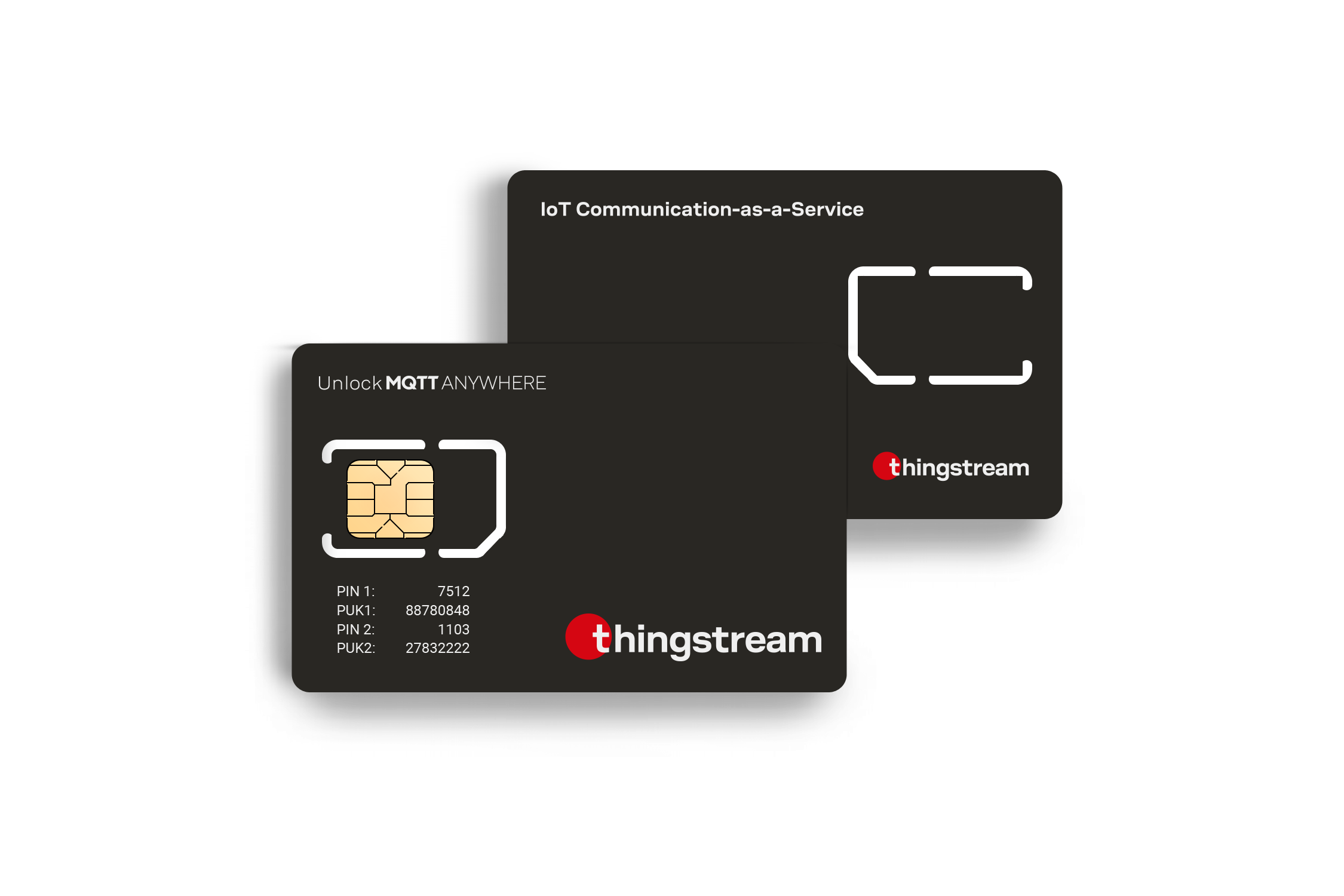Iot Sim Card Pricing IoT SIM Card Data Plans Pricing
Iot Sim Card Pricing IoT SIM Card Data Plans Pricing
Blog Article
Cellular Iot Sim Card IoT Shattering Connectivity Expectations
The landscape of producing is evolving quickly, driven primarily by technological advancements. Among these developments, IoT connectivity solutions for manufacturing automation stand out as pivotal components reshaping how industries function. The Internet of Things (IoT) integrates digital and bodily worlds, creating a network of interconnected units that talk seamlessly. This interconnectedness allows manufacturers to optimize their processes and enhance productivity.
Real-time knowledge is a cornerstone of recent manufacturing. Through IoT connectivity options, machines and sensors generate information that provide insights into production processes. This quick access to data empowers producers to make informed selections shortly. For occasion, if a machine is underperforming, operators can establish the difficulty and implement corrective actions at once, finally minimizing downtime and enhancing throughput.
Predictive maintenance is another significant good factor about IoT connectivity solutions. By constantly monitoring tools efficiency through numerous sensors, producers can anticipate failures earlier than they occur. This proactive strategy drastically reduces maintenance prices and improves the lifecycle of equipment. Instead of adhering to a reactive maintenance technique, organizations can optimize their maintenance schedules primarily based on precise machine situations.
Cellular Iot Sim Card IoT SIM cards
IoT technology additionally facilitates higher supply chain management. With the combination of sensors throughout the supply chain, manufacturers achieve enhanced visibility into stock ranges and materials flows. This improved visibility allows businesses to optimize stock management, guaranteeing that they've the mandatory supplies readily available without overstocking. Such efficiency translates to decreased costs and improved service levels, that are crucial for maintaining a aggressive edge.
Automation and robotics are increasingly reliant on IoT connectivity options. Smart factories integrate automated methods powered by IoT to streamline manufacturing processes. Robotics equipped with IoT capabilities can talk with one another and adjust their actions based mostly on real-time knowledge from the environment. This degree of synchronization enables the implementation of adaptive manufacturing methods that respond to fluctuations in demand quickly and successfully. Sim Card Iot.
Free Iot Sim Card International IoT M2M SIM Card
Implementing IoT connectivity options requires a strong network infrastructure. Manufacturers must put money into dependable and safe communication networks able to handling the immense information generated by interconnected gadgets. 5G know-how is emerging as a crucial enabler of IoT connectivity in manufacturing. Its speedy velocity and low latency assist the real-time applications which might be important for data-driven decision-making.
Data analytics performs a vital role in harnessing the complete potential of IoT connectivity solutions. With a wealth of data generated from related gadgets, producers should make use of advanced analytics instruments to extract actionable insights. Machine learning algorithms can establish patterns and anomalies in data that may not be apparent to human analysts. This data-driven method enhances operational efficiency by driving steady improvement across manufacturing processes.
Cybersecurity is a vital consideration as manufacturers integrate IoT solutions into their operations. The connectivity that IoT brings will increase the surface space for potential cyberattacks. Implementing robust safety measures to safeguard important manufacturing techniques is paramount. This entails making certain that each one devices are safe, data is encrypted, and continuous monitoring for threats is in place.
Worker security is significantly improved through IoT connectivity options. Wearable units equipped with sensors can monitor the health and safety of employees in real time. These smart wearables can alert personnel to hazardous circumstances, ensuring well timed intervention. Such measures not only shield workers but also contribute to general productiveness by minimizing the risk of accidents.
Iot Sim Card Providers Smart IoT SIM Cards
The transition to smart manufacturing via IoT connectivity solutions also promotes sustainability. By optimizing processes, producers can considerably reduce waste and energy consumption. IoT devices assist observe useful resource utilization, enabling companies to establish areas the place effectivity may be enhanced. These environmentally pleasant practices not only benefit the planet however can even lead to price financial savings over time.
The impact of IoT connectivity solutions on manufacturing extends beyond the operational realm. They enable enhanced customer engagement by allowing manufacturers to ship customized products and services. Through IoT-enabled units, producers can collect knowledge about buyer preferences, resulting in the creation of tailor-made choices that higher meet market calls for. This stage of engagement fosters buyer loyalty and strengthens model status.
In conclusion, IoT connectivity options for manufacturing automation symbolize a transformative pressure in the industry. By providing real-time insights, predicting gear failures, enhancing supply chain management, and enhancing worker safety, these options redefine operational effectivity. As producers proceed to integrate IoT technologies, the advantages lengthen beyond traditional metrics of productiveness and value. Embracing these innovations units the groundwork for a extra sustainable and responsive manufacturing environment that is geared up to fulfill the challenges of the longer term.
4g Iot Sim Card IoT M2M SIM Cards Data Plans

- Enhanced real-time monitoring via IoT sensors permits manufacturers to track machinery efficiency and operational effectivity.
- Predictive maintenance is facilitated by IoT connectivity, lowering downtime and increasing gear lifespan via timely interventions.
- Seamless integration of IoT units throughout production lines enhances data assortment, resulting in improved decision-making processes.
- Wireless technologies corresponding to LPWAN allow cost-effective communication over vast manufacturing services, minimizing set up complexity.
- Cloud-based IoT platforms present scalable solutions for data analytics and visualization, empowering producers to establish trends and optimize workflows.
- Enhanced asset monitoring utilizing IoT gadgets ensures higher inventory management and lowered losses due to misplacement or theft.
- Industry-specific IoT protocols, like MQTT and CoAP, ensure environment friendly and safe knowledge transmission tailored to manufacturing wants.
- Advanced cybersecurity measures are essential in IoT ecosystems to protect delicate operational knowledge from potential threats and breaches.
- Integration of IoT with machine studying algorithms allows for autonomous changes and enhancements in manufacturing processes primarily based on historical knowledge.
- Collaboration with IoT resolution suppliers allows manufacturers to customise connectivity methods that tackle their unique operational challenges.
What are IoT connectivity solutions for manufacturing automation?
IoT connectivity options enable seamless communication between machines, sensors, and gadgets inside a producing environment, facilitating information trade, monitoring, and control to enhance operational effectivity and decision-making.
How do IoT connectivity solutions enhance manufacturing processes?
These solutions streamline workflows, cut back downtime, and optimize asset utilization by offering real-time data insights, enabling predictive maintenance, and enhancing supply chain visibility.
Best Iot Sim Card Global IoT SIM Cards Reliable Connectivity
What types of IoT connectivity technologies are commonly utilized in manufacturing?
Common technologies embody Wi-Fi, Zigbee, LoRaWAN, cellular (4G/5G), and Bluetooth. Each know-how offers unique advantages based mostly on vary, knowledge switch velocity, and power consumption suited to totally different manufacturing wants.
How safe are IoT connectivity options for manufacturing?
Robust security measures, together with encryption, system authentication, and community segmentation, are essential to guard manufacturing environments from cyber threats, guaranteeing knowledge integrity and operational continuity.
Global Iot Sim Card eSIM 101 Introduction eSIM IoT
Can IoT connectivity options be integrated with present manufacturing systems?
Yes, many IoT options are designed for interoperability, allowing integration with legacy systems and tools. This enables manufacturers to enhance their capabilities with out replacing current infrastructure.
What Is An Iot Sim Card Global IoT SIM Cards Business
What are the cost implications of implementing IoT connectivity solutions?
Initial setup prices could range, however long-term savings are sometimes realized via elevated effectivity, reduced waste, and improved maintenance methods (Does Nb-Iot Need A Sim Card). A detailed cost-benefit analysis can help determine the financial impact.
How can I choose the proper IoT connectivity solution for my manufacturing facility?

Evaluate elements corresponding to scalability, reliability, ease of integration, and particular use case requirements. Consulting with business experts and conducting pilot check out here initiatives can help in figuring out one of the best match for your wants.
Iot Sim Card IoT SIM vs Normal SIM
What are the challenges in adopting IoT connectivity solutions for manufacturing?
Challenges might embody cybersecurity concerns, interoperability issues, and the need for staff coaching. Addressing these obstacles by way of strategic planning and stakeholder involvement can facilitate profitable adoption.
How does data collected via IoT connectivity affect decision-making in manufacturing?
Real-time data analytics allows manufacturers to make informed choices quickly, optimizing operational processes, enhancing quality control, and enabling view it proactive administration of sources and potential issues - Global Iot Sim Card.
Report this page